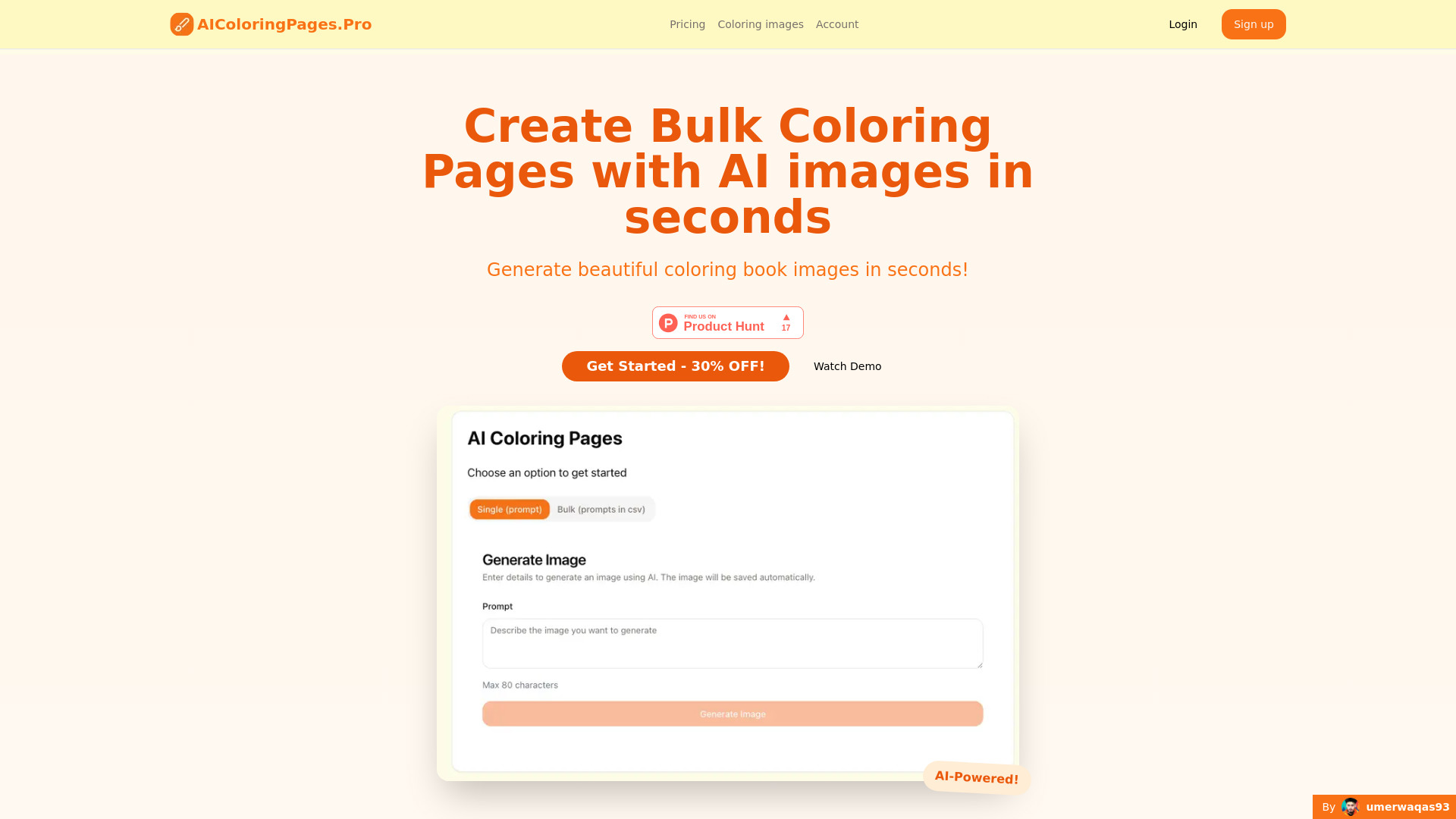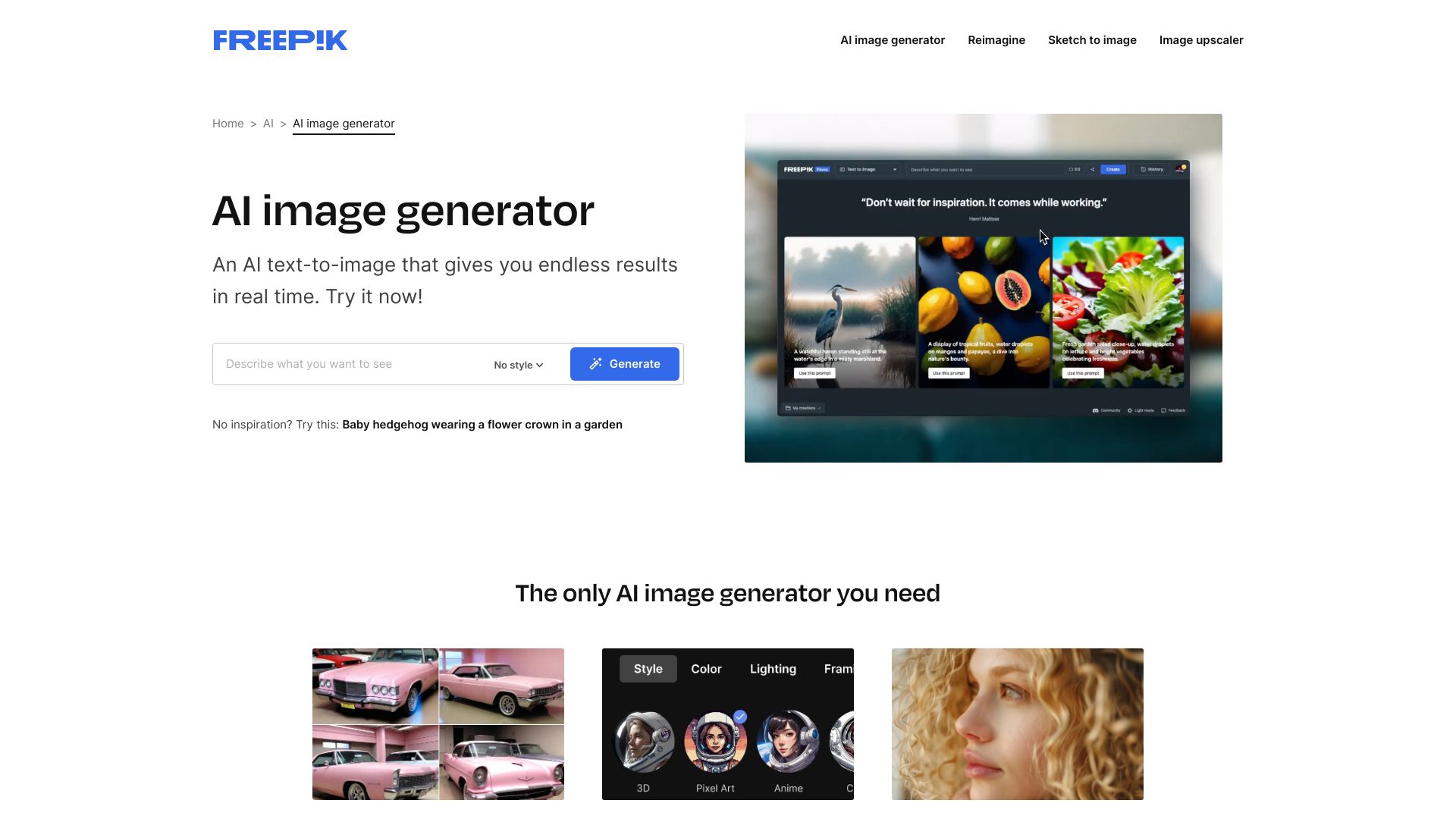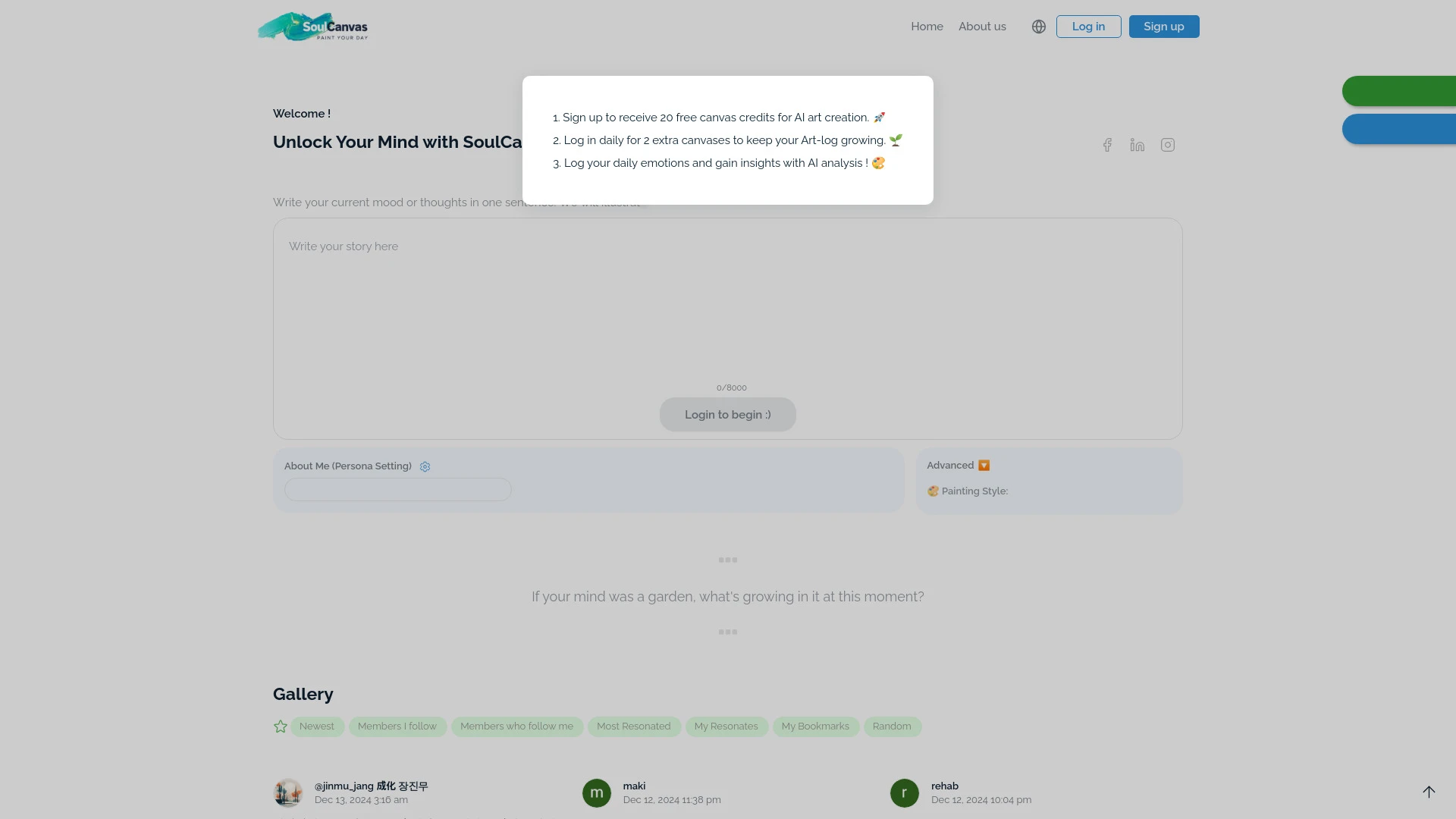AI Photography
AI photography leverages artificial intelligence to enhance image quality, automate editing, and generate realistic images. Applications include facial recognition, style transfer, and automated tagging. Benefits include time-saving edits and enriched creativity. However, challenges arise with ethical concerns like deepfakes, copyright issues, and maintaining authenticity in photography.
Primary AI
Most Commonly Used Task
Core Features
Image enhancement
Automatic retouching
Style transfer
Subject recognition
Background removal
Image generation
Use Cases
Image enhancement and restoration
Automatic photo tagging and organization
Style transfer and artistic filters
Automated scene detection and categorization
Creation of synthetic images for training datasets
Most Helpful AI's
Primary Tasks For AI Photography
| # | Task | Popularity | Impact | Follow |
|---|---|---|---|---|
| 1 |
🖼️
Images |
0% Popular
|
85%
|
|
| 2 |
✂️
Image editing |
0% Popular
|
85%
|
|
| 3 |
🖼️
Product images |
50% Popular
|
75%
|
|
| 4 |
🤖🔍
AI content detection |
0% Popular
|
87%
|
|
| 5 |
✨
Image enhancement |
0% Popular
|
87%
|
|
| 6 |
🖼️
3D images |
100% Popular
|
87%
|
|
| 7 |
🖼️
Image descriptions |
50% Popular
|
87%
|
|
| 8 |
🖼️
Image prompts |
0% Popular
|
87%
|
|
| 9 |
👔
Professional avatars |
0% Popular
|
72%
|
|
| 10 |
🏛️
Architectural design |
0% Popular
|
82%
|
|
| 11 |
📱
Apps |
50% Popular
|
76%
|
|
| 12 |
👤
Avatars |
50% Popular
|
78%
|
|
| 13 |
🛋️
Interior design |
50% Popular
|
78%
|
|
| 14 |
🎨
Anime images |
50% Popular
|
82%
|
|
| 15 |
🎨
Image cartooning |
0% Popular
|
73%
|




